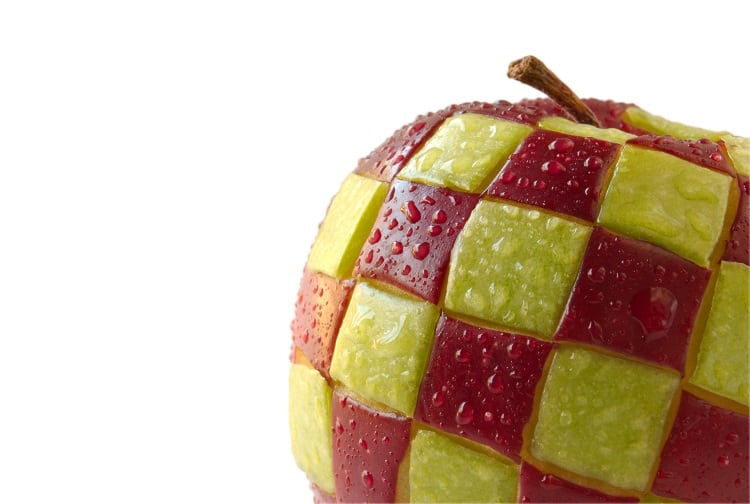What innovations are landing on supermarket shelves this month? In our latest round-up of new production development across Europe, we look at ‘tuna-free flakes made from Scottish seaweed and pea protein. In the Nordics, Rebl Eats is teaming up with mycoprotein maker Mycorena to develop alt meat ready meals, and in the Netherlands, start-up Northern Wonder has launched coffee-free coffee made from non-tropical ingredients.
Scroll through the photo gallery for more…
GettyImages/thomasd007
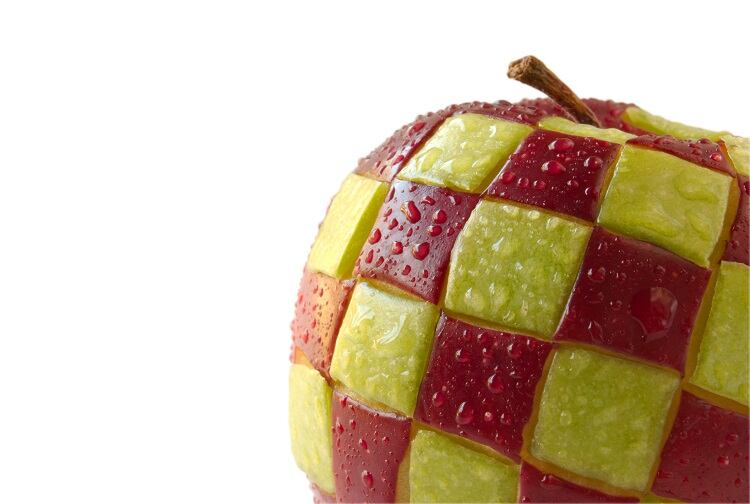
What innovations are landing on supermarket shelves this month? In our latest round-up of new production development across Europe, we look at ‘tuna-free flakes made from Scottish seaweed and pea protein. In the Nordics, Rebl Eats is teaming up with mycoprotein maker Mycorena to develop alt meat ready meals, and in the Netherlands, start-up Northern Wonder has launched coffee-free coffee made from non-tropical ingredients.
Scroll through the photo gallery for more…
GettyImages/thomasd007
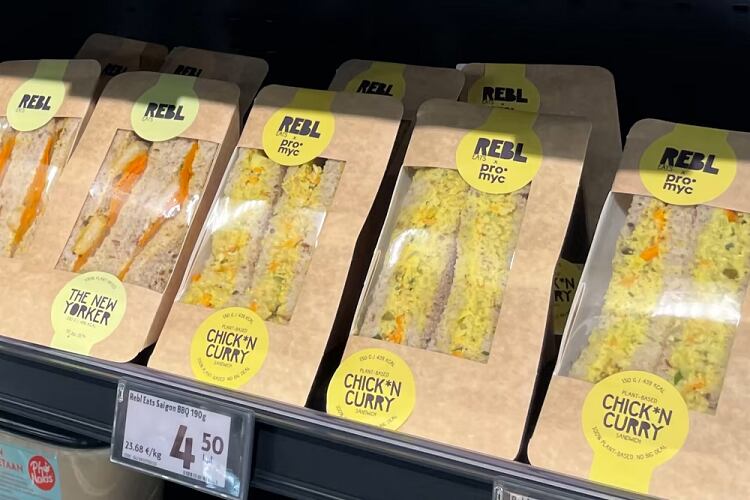
Mycoprotein maker Mycorena and plant-based brand Rebl Eats are teaming up to offer meat substitutes to the Nordic market.
Under the new collaboration, Reble Eats’ product development team has created a new line of ready meals containing Mycorena’s fungi-based product Promyc.
Launched by Rebl Eats and branded with Promyc, the line has launched into 15 stores in Helsinki. They have become the best sellers among Rebl Eats’ café range.
The next stage of the collaboration will see the products introduced to the Swedish market, before rolling out into the rest of the Nordic countries and further into Europe.
“The growing market for ready meals is something we’ve had our eyes on for a while now. We have conducted tests both internally and in collaboration with a couple of companies to investigate the possibilities of Promyc in such dishes, especially considered the short shelf life.
“We were surprised by how well Promyc performed, and we’re extremely excited to take it to the real market,” said Mycorena COO Ebba Fröling.
From Rebl Eats’ perspective, it’s all about ‘taking control’ of its ready meals and sandwiches with meat substitutes. “As soon as you take control of the entire product instead of just giving consumers new protein, you can control the taste,” said Rebl Eats co-founder Martti Paatela.
“As far as new options for chicken go, Promyc has definitely been the best we’ve seen so far.”
Image source: Rebl Eats
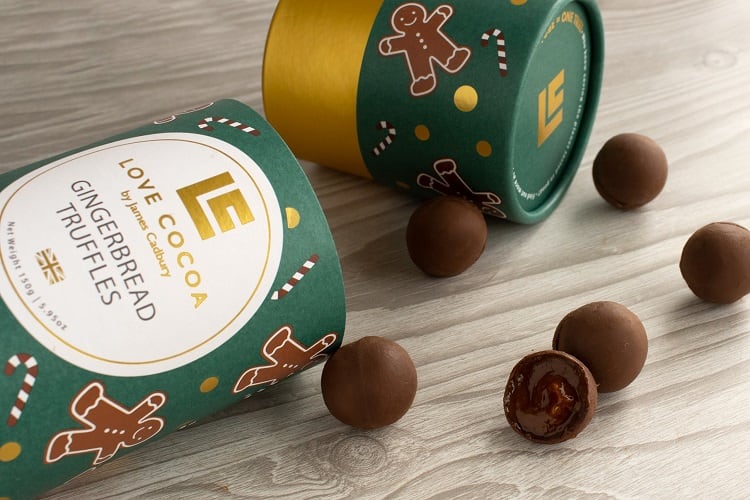
James Cadbury – the great-great-great grandson of Mr Cadbury – is launching a line of festive chocolate products in the lead up to the holiday season.
Under his Love Cocoa Brand, Cadbury has developed a Luxury Truffle Calendar (RSP £25), and a Luxury Chocolate Calendar (£12).
The new festive collection also includes boxes of Milk Champagne Snowball Truffles and Gingerbread Truffles (both £13.50/150g) A 21-piece Festive Chocolate Selection Box is selling for £23.95/220g.
Cheese Chocolate Truffles are a new edition, made with cream cheese ganache, a dash of alcohol, and a milk chocolate truffle shell (£13.50/150g).
An exclusive collection with John Lewis is also hitting the market.
“Christmas is all about chocolate we believe our ethical, plastic free festive offerings will be a big hit with the British public,” said Cadbury.
“This year we’ve brought out a less expensive luxury calendar too, to cater for those consumers who want to treat themselves (or family member or friend) with a quality chocolate calendar but who are watching what they spend.”
Image source: Love Cocoa
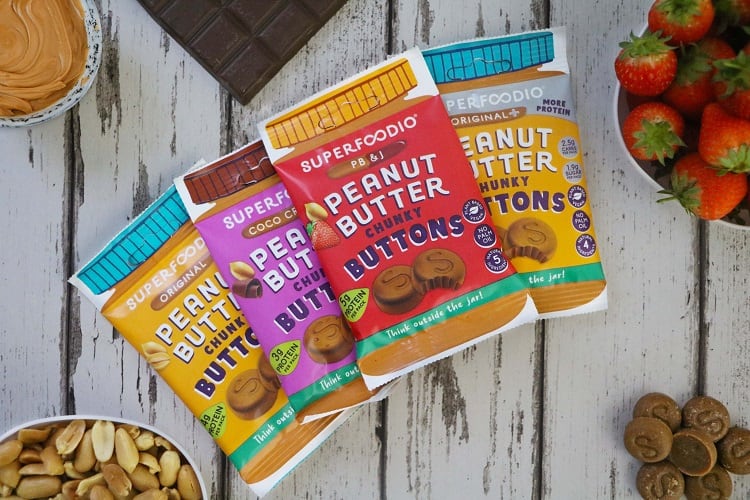
Plant-based snacks brand Superfoodio has launched a line of Peanut Butter Buttons as part of Co-op’s Apiary Scheme.
Since the 1880s, peanut butter has been sold inside a jar, but Superfoodio’s husband and wife founders Nirali and Jagir Mankodi wanted to think ‘outside the jar’ to make a convenient, on-the-go snack.
“We wanted a simpler way to enjoy peanut buttery goodness on-the-go. The problem with a jar (or a squeezy pack) is that you always end up with sticky fingers and an oily mess,” noted the co-founders.
“That’s why we created our Peanut Butter Buttons that you can hold in your hand. They are the perfect snacks to satisfy that peanut butter craving anywhere, anytime. No jars, no mess, no more buttery fingers!”
Superfoodio will be launching across 196 Co-op stores across the UK in three flavours: Original, PB&J, and Coco Crunch (RRP $1.50).
Image source: Superfoodio
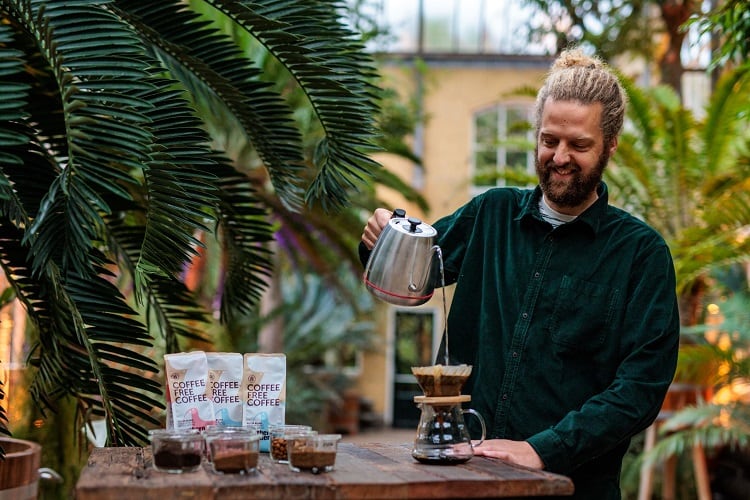
In the Netherlands, entrepreneurs have spent the last two years working on a coffee alternative with a strict sourcing policy: it must not contain any ingredients grown in a tropical environment.
The result, which launched onto the market last week, is Coffee Free Coffee by Northern Wonder. According to the start-up, the product has the taste and smell of coffee, contains caffeine, and is even brewed the same way as regular coffee.
It’s all in the name, suggested Northern Wonder co-founder and CEO David Klingen: “It’s a miracle, or a ‘wonder’, that we succeeded in making such a great product with ingredients only from the ‘northern’ hemisphere.”
Northern Wonder is launching its first line of products on the market. Four SKUS – made up of caffeinated and decaffeinated filter blends; and caffeinated and decaffeinated capsules – make up first line of products.
The final ingredients chosen differ slightly depending on whether it is intended for filter or capsule formats. The capsule blend, for example, is made from lupin, barley, rye, fig, chickpea, chicory, carob, black currant, caffeine, and natural flavour. The roasted filter ground blend doesn’t include fig or carob.
The caffeine level is similar to normal coffee (1400mg/100g), but comes from a different source. “We have a very string rule, which states we don’t use tropical ingredients. Because conventional products that contain caffeine can only be found in the tropics, we use a synthetic caffeine source,” Klingen explained.
The crema element was developed by chance: when the Nespresso-compatible capsules are put through a machine, crema – which ‘looks like the real thing’ – appears, thanks to Northern Wonder’s selected blend of ingredients. “It turned out great,” said the CEO.
Northern Wonder is initially launching direct to consumer via its website.
More details on Northern Wonder’s development of coffee-free coffee can be found HERE.
Image source: Northern Wonder
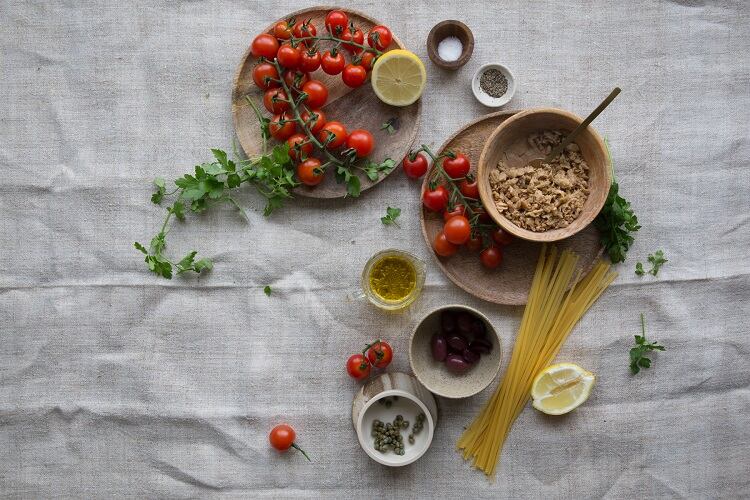
Plant-based seafood brand Seabloom is launching a tuna-fish alternative into retail.
Seabloom ‘Tuna-Free’ Flakes, which offer similar nutritional benefits to tinned tuna, come in two flavour varieties: Olive Oil ‘Tuna-Free’ Flakes and Lemon ‘Tuna-Free’ Flakes.
Made using organic Scottish seaweed, alongside pea protein and flaxseed oil, the fish-free offerings are suitable for vegans, vegetarians, pescatarians and flexitarians.
“On a trip to Cape of Good Hope in South Africa in 2018, I saw whales breaching out of the sea alongside industrial fishing vessels. Despite working in the seafood industry for over 18 years, it didn’t’ feel right and I knew I had to do something about it,” said Greta Desforges-Hodgson, founder of Seabloom.
Seabloom’s flakes range is frozen and can be defrosted at room temperature in three hours or six hours in the fridge. Sold in recyclable packaging (minus a film lid), the range is currently available in the frozen section of Ocado.
Seabloom Olive ‘Tuna-Free’ Flakes have an RRP of £3.30 and Seabloom Lemon ‘Tuna-Free’ Flakes have an RRP of £3.65.
Image source: Seabloom
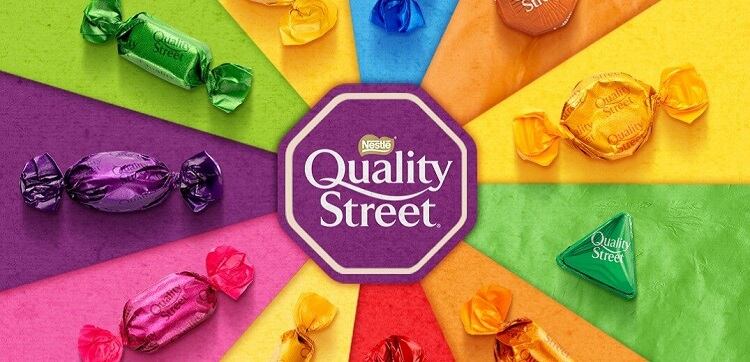
Globally, Quality Street is replacing its dual foil and cellulose wrappers with recyclable FSC-certified paper packaging.
The new packaging was developed by teams at Nestlé’s Confectionery Research and Development Center in York, UK, and the Swiss-based Nestlé Institute of Packaging Sciences.
The transition to paper required ‘extensive’ development in the engineering of new materials, coating technologies, printing techniques, and the adaptation of existing equipment.
Nestlé has not replaced all existing wrappers within the Quality Street range, however. Two flavours – Orange Crunch and the Green Triangle – will remain in their existing, recyclable foil wrappers.
The company is confident the change will have been worthwhile, with consumers increasingly asking for sustainable packaging. It is estimated the move will see almost 2.5 billion individual pieces of packaging material removed from Nestlé’s supply chain globally.
The initiative is the most recent move by Nestlé’s to improve the sustainability credentials of its confectionery division. At the Halifax factory, where Quality Street is produced, there is zero waste to landfill. Since 2015, the brand has used only certified sustainably sourced cocoa, and Quality Street chocolate is made from milk sourced from farms in Scotland that have been part of a sustainable farming partnership with Nestlé since 2003.
Last year, Nestlé introduced recyclable paper packaging for all Smarties products. As the second Nestlé confectionery brand to make the move to paper, the company says it is a ‘major step’ in Nestlé achieving its goal of 100% recyclable packaging by 2025.
More details on Nestlé’s move to recyclable packaging across its Quality Street range can be found HERE.
Image source: Nestlé
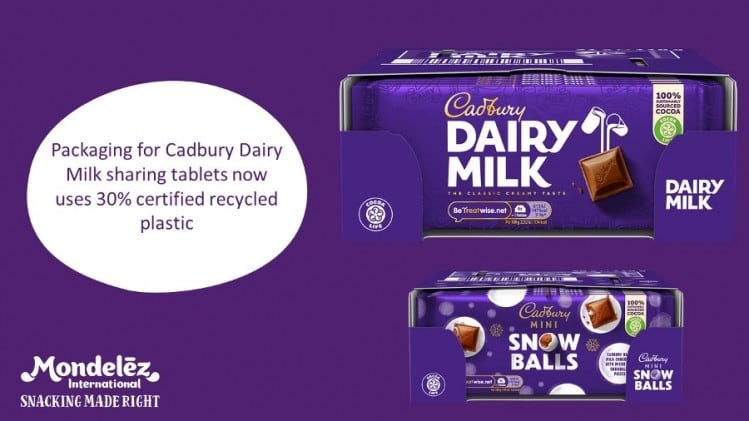
Mondelēz International has announced its Cadbury Dairy Milk and Cadbury Mini Snowballs sharing bars will be wrapped in new packaging made from 30% recycled plastic.
The brand is using the mass balance approach. Recycled plastic packaging will be independently certified by ISCC and supplied in partnership with Amcor.
The new packaging has already been rolled out across more than 28 million sharing bars for sale in the UK and Ireland.
“Until recently, flexible plastic packaging has been considered a single use material. The development of advanced recycling technology and our significant investment in this material means it’s now possible for Cadbury fans to enjoy their favourite sharing bars more sustainable here in the UK,” said Dirk van de Put, CEO Mondelēz International.
Louise Stigant, UK Managing Director at Mondelēz, said she was ‘proud’ to see this ‘important innovation’. “We are very keen to reduce our use of virgin plastic across our full range and this innovation signals our demand for this material and much needed investment into the UK recycling infrastructure to produce it.”
Image source: Mondelēz International


